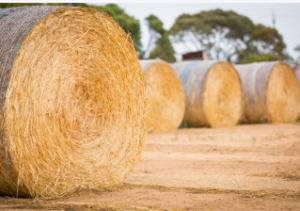Baler twine is available in various materials, including synthetic and sisal. There is also a double-knot tying system for large square balers.
 Sisal twine
Sisal twine
Sisal twine is a natural and biodegradable material for baling hay. This baler twine is designed to be a strong yet lightweight solution to tying up a bale of hay. There are many types to choose from, including natural and synthetic, as well as two-ply and three-ply. A variety of colours are also available.
One of the most commonly used types of baler twine is polypropylene. This type of twine is also a good choice for its high tensile strength and ease of tying. It also has the benefit of being durable and safe for the environment. Therefore, the material is suited for agriculture and other applications, such as tying up wire tree baskets.
Other types of baler twine include net wrap and sisal twine. In the past, baler twine was mainly composed of natural fibres, such as sisal, but manufacturers have come up with synthetic alternatives. Some companies have even incorporated manufactured fibres such as plastic into their production process.
Sisal twine is a natural, eco-friendly alternative to flimsy plastic or polypropylene. Its tensile strength is more than sufficient to bind up a large hay. However, some bale makers are wary of its tendency to rot, especially in outdoor conditions. To ensure the safety of their bales, they often tie them with other materials, such as sisal tape.
While there are many types of baler twine on the market, one of the more practical and functional uses of the material is to mend fences. Using twine, you can attach tractor parts and stabilise the walls around your property. These are valuable tasks if you have an area to cover, such as a field where you can plant crops or graze animals.
For the best quality and value, go with Tytan Premium Sisal Baler Twine. It is a top-quality product made from the finest machinery and fibres. Also, it is treated to ward off insects and rodents. You may also consider Holland Extra(r) Sisal Baler Twine, a high-quality, naturally occurring fibre from fine Brazilian sisal.
Synthetic baler twine
Synthetic baler twine is a type of binding twine that is manufactured with synthetic fibres. It can be used to bind and secure bales of hay, straw, and other fibrous materials.
The term baler twine is derived from the fact that it was used to bind hay bales. Initially, this was done by hand. Later, automatic baler machines were invented. These machines were used to tie hay bales automatically. Today, they are widely used in farm industries.
Polypropylene baler twine is one of the most common types of synthetic twine. This type of baler twine is durable and resistant to most chemicals and organic solvents. It is also resistant to rot and mildew. Another advantage of polypropylene is that it does not deteriorate after sunlight exposure.
Aside from its durability, polypropylene is also suitable for wrapping vine stems and grapes. It is also an inexpensive solution for tying hay. In addition, it has a muscular tensile strength and a high elongation factor.
Traditionally, baler twine is made from sisal. However, using synthetic materials has led to the developing of a new type of baler twine.
Polypropylene baler twine offers the same advantages as natural baler twine. For instance, it has a tensile strength of at least 300 pounds. Moreover, it is durable and abrasion resistant. Compared to natural baler twine, polypropylene is more convenient to handle. Besides, it is available in various colours, allowing easy processing and storage.
Another benefit of using synthetic baler twine is its energy absorption capability. Specifically, the elongation of this type of twine is higher than 5% when it is a knotted length. Additionally, it can be able to withstand impact loads that are equal to the limit of vegetable fibre twine.
One of the leading manufacturers of synthetic baler twine is Cordex. The company has been in the business for over 40 years. With its innovative technology, it has developed high-tensile strength twine. This twine is abrasion-resistant and holds the heaviest bales without problems.
In addition to synthetic baler twine, CWC also produces natural baler twine. Both products are highly abrasion-resistant and are treated to resist mildew and rodents. They are also available in various colours, allowing for easy identification of different bales.
